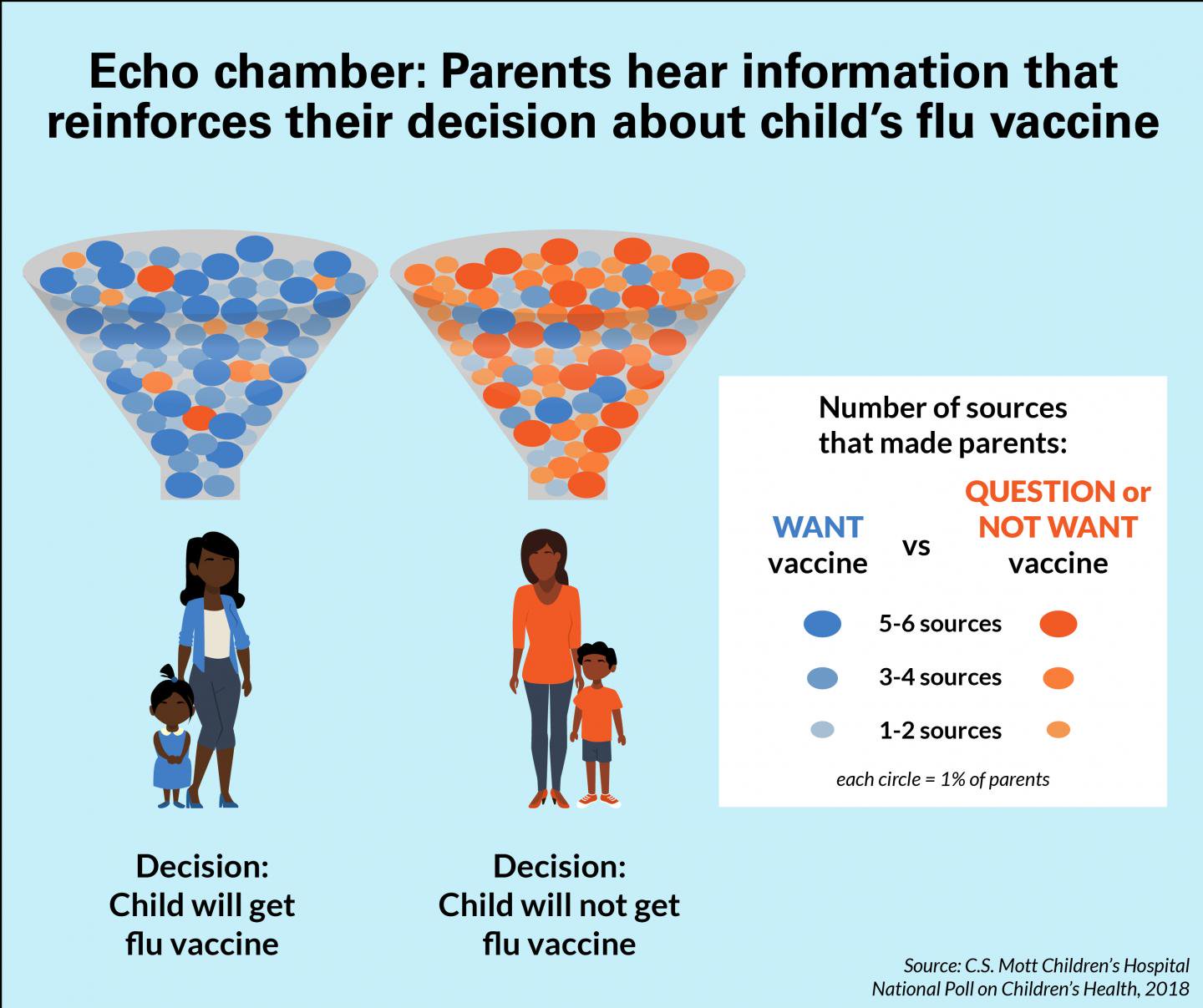HESITANCY
Why Parents Are Declining Flu Vaccination This Year?

Sarah J. Clark
A C.S. Mott Children’s Hospital National Poll on Children’s Health demonstrated that a significant number of parents choose not to vaccinate their child against influenza. The survey showed that nearly 40% made their decision based on what they read or heard about the vaccine. Researchers said this is a result of an "echo chamber" effect related to negative information.
Additionally, one in five parents reported that their child’s provider did not recommend the influenza vaccine this year.
The CDC recommends that everyone aged 6 months and older should be vaccinated against influenza every season and may choose from influenza shots or FluMist (live-attenuated influenza vaccine, AstraZeneca). This year, the AAP has decided not to endorse the nasal spray vaccine unless a child would not otherwise be vaccinated.
"Child health providers are a critical source of information to explain the rationale for annual flu vaccination and to parents’ questions about flu vaccine safety and effectiveness," Sarah J. Clark, MPH, associate research scientist at the University of Michigan’s Medical School in the department of pediatrics and co-director of the C.S. Mott Children's Hospital National Poll on Children’s Health, said in a press release. "Without clear guidance from the provider, parents may be left with misinformation, such as the suggestion that the flu vaccine causes the flu."

Four in 10 parents said they based their decisions about the influenza vaccine on what they read and heard. Those who use this as their primary source of information were less likely to have their child vaccinated when compared with parents who follow their health care provider's recommendation. Click to enlarge
Source: C.S. Mott Children’s Hospital National Poll on Children’s Health at the University of Michigan
The poll included 1,977 parents aged 18 years and older who were randomly selected and had at least one child. About half (51%) reported that their child’s provider strongly recommended vaccination, while 26% of their providers “mostly” recommended vaccination. Nearly 25% of parents did not recall their provider making a recommendation, and 2% reported that their provider suggested their child remain unvaccinated against influenza.
Slightly less than half of parents (48%) agreed that they followed their health care provider's recommendations. If parents were given a recommendation, they said were likely (87%) to get their child vaccinated this year.
According to the researchers, 38% of patients based their decisions on what they heard or read. More than half of these parents reported that they would not be getting their child vaccinated this year.
"There appears to be an echo chamber around flu vaccine," Clark said. “Parents who are not choosing flu vaccination for their child report hearing or reading opinions that question or oppose the vaccine. At the same time, parents who decided their child will get flu vaccine report opinions that strongly support vaccination."
Clark and colleagues said that parents who chose not to vaccinate their child had seven times more negative information sources about the vaccine. The most influential negative information included comments from family or close friends (45%) or other parents (44%). Internet sites were also frequently cited as sources of negative information (40%), in addition to comments from their child’s provider (35%), nurses or medical staff (32%), or books and magazines (32%).
In contrast, parents who intended on vaccinating their child had four times the number of positive sources, the most common of which included comments from their child’s provider (67%), nurses and medical staff (59%), comments from family or close friends (47%), other parents (42%), and parenting books and magazines (34%). Approximately 33% of parents reported seeing suggestions for influenza vaccination on the internet.
"It is important to acknowledge that for some parents, child health providers are not the sole influence, or even the primary influence, on decisions about the flu vaccine," Clark said. "For these families, we need to explore other mechanisms to convey accurate information and allow parents to hear a more balanced viewpoint."
– by Katherine Bortz In Infectious Diseases in Children, November 2018.
References:
Clark SJ, et al. CS Mott Children's Hospital National Poll on Child Health. 2018. 33(1).
CDC: Influenza (Flu). https://www.cdc.gov/flu/consumer/vaccinations.htm. Accessed November 20, 2018.

